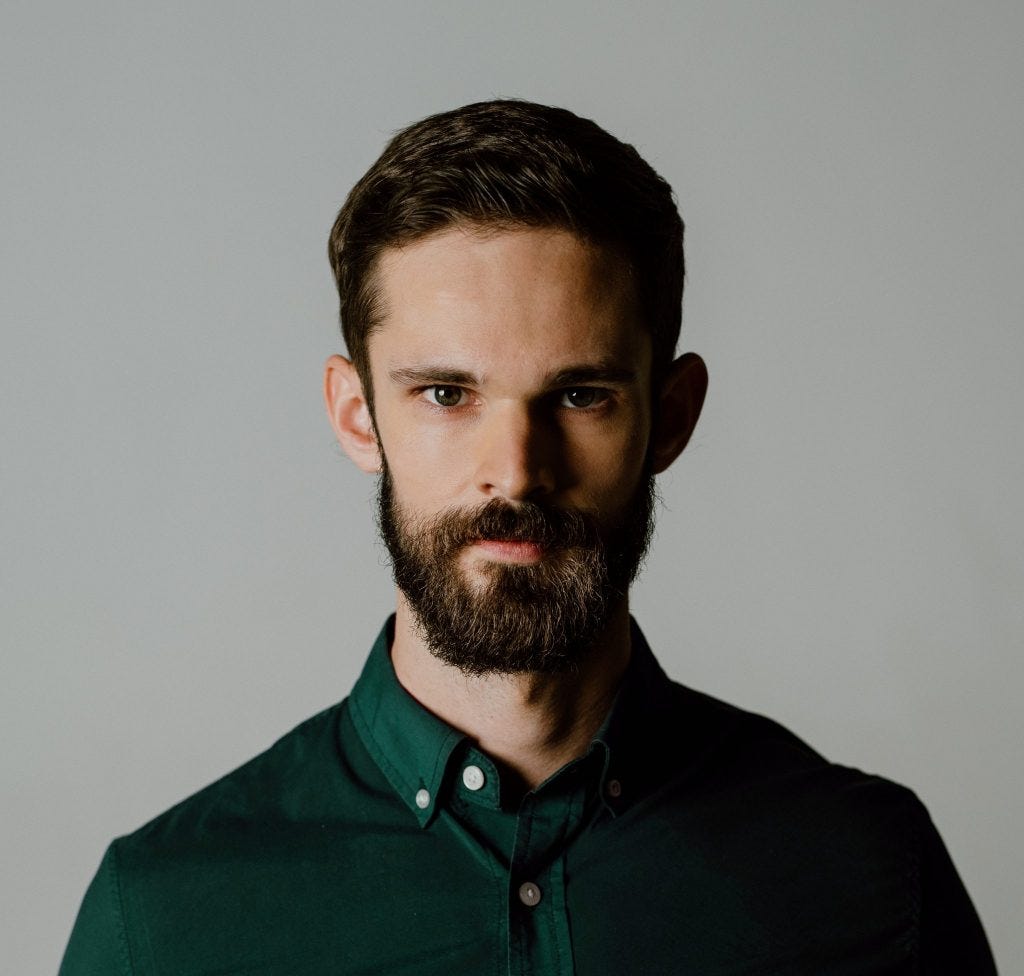There is so much work to be done, and much of it involves not writing ideas down but putting ideas into practice. This is, as has been stressed, “a time to build”—to found things, to develop new digital and educational infrastructure, to act upon all the rallying cries that have been issued in years past. We are now seeing vividly the stakes of inaction, and the consequences of complacency. We really do have to be about it now.
But there are some things that do still need to be talked out. Surely one of the most important ones is this: how does Trumpism cohere post-Trump? That is a question on William Voegeli’s and Charles Kesler’s minds in the new issue of the Claremont Review of Books; it is a major object of concern for the excellent young men of American Moment. It is one that requires thought.
We need to capture the energy of all that these last four years meant to us, all that they revealed and all the flinty determination those revelations inspired. We need to harness all that into an organized, sensible, and above all viable political project for the long term. And we do need to think about how that can be done, not just charge headlong into it using pure dragon energy alone as jet fuel.
I’d like to make a modest contribution to this endeavor—to sketch it here in brief, and develop it more fully later. As I understand it, the passionate and energetic movement that rallied behind Trump includes many people with serious critiques not just of Democrats, but of the liberalism of the ruling class, Republican and Democrat. Many view this liberalism as having been doomed to failure from the start, because of the complete autonomy it seems to grant unmoored individuals, especially for example in the work of John Stuart Mill, Jean-Jacques Rousseau, and John Locke.
Patrick Deneen’s Why Liberalism Failed is of course a seminal example here, but there are many others: many for whom “man is born free, but is everywhere in chains” leads directly to Drag Queen Story Hour. “The sole end for which mankind are warranted, individually or collectively, in interfering with the liberty of action of any of their number, is self-protection,” writes Mill. One sees how this sort of “non-aggression principle,” taken to an extreme and without counterbalance of any kind, neuters conservatives. For instance: conservative liberals of a certain stripe treat private corporations, even those such as Amazon and Google which have accrued intolerable power over personal expression, as sacred entities never to be touched or interfered with. This cannot be right.
Over and against this form of liberalism we find re-asserted certain older, more basic truths which the New Right considers prior to and therefore not dependent upon the American regime. Josh Hammer, for example, reminds us of Harry Jaffa’s observation that liberty appears in the Declaration not as a first principle but as a blessing—a fruit—of more primary virtues like piety, prudence, and self-government.
Others note that freedoms such as those articulated in the bill of rights are stated in the Declaration to be “endowed” in us “by [our] Creator” and therefore only secured, not given or taken, by the American government. So if the machinery of our regime or economy becomes so corrupt that it threatens those rights, the rights and not the economy come first. Hence the new appetite for anti-trust action against Big Tech, or for Section 230 reform: when a corporation threatens to nullify our rights it is the corporation, not the rights, that must cede ground. That is non-negotiable.
In any event, what these various lines of thought seem to have in common is an insistence that we have talked ourselves into perverting or usurping our most basic virtues and values, and that this is a sign we have reasoned wrongly. Roughly speaking, the election of Donald Trump and the intense emotion surrounding his eventual departure from office seem to me an impassioned but relatively inchoate assertion of this principle.
Trumpism was a furious reaction against a bloodless, vampiric ruling class, against the erosion of indispensable values and the stigmatization of religious faith, against economic depredations of the globalist coasts upon regional communities in a manner that Wendell Berry long ago compared to intra-American colonialism. In all of this—from the gymbro Twitter pseuds to the high-profile public intellectuals—we were insisting that certain basic truths are inviolate.
At the same time of course, a re-assertion of basic truths does not a modern political program make. It is an excellent start, of course: we can, we must, insist on the integrity of our bodies, our churches, our communities. The New Right is lashing out against a liberalism carried to an insane and self-defeating extreme. But much of the horror that this New Right evinces among its conservative critics is a horror of what might happen should these older and deeper truths be carried to their extreme, without counterbalance of their own. The Strong Gods have returned in vengeance. But when they do so, they do not come to build. They come to destroy.
Much that is now crumbling needs to crumble, and in this regard I welcome those Strong Gods. But I wonder how we will feel once their pitiless work is done. It may be then that we feel we have thrown the baby out with the bathwater, unless we assert some civilizing ethos to temper the raw energy of our newfound vitality.
There is a passage in Joshua Mitchell’s American Awakening which seems to me pregnant with the potential for an answer:
What does so-called liberal universalism really amount to? Often the idea is not worked out in detail, but the general account of it is unmistakable: Liberal universalism is the fruit of the Enlightenment, and is taken to be synonymous with the French Revolution, and the “All men are created equal” clause of the American Declaration of Independence, which itself emerged from the writings of John Locke. This is an intellectually dubious genealogy. The Enlightenment was not one intellectual movement; it was many, each having distinct national characteristics. John Locke, perhaps the first great liberal thinker, wrote a century before the French Revolution, and never would have endorsed a revolution on the basis of abstract and universal rights, as the French Revolution was. The French Revolution sought to overthrow everything, even the Gregorian calendar. Locke remained a Christian throughout his life, and sought to defend property and the integrity of the (Christian) family. If Locke must be painted as a universalist, it ought to be as a Christian universalist—which is to say, he believed that God would unify His kingdom at the end of history.
I wonder whether, at its best, liberalism of the original sort was what you might call a secondary philosophy. That is, it was a philosophy for how to live once the old truths were taken for granted. After all the religious wars had been fought, after Aristotelian virtue ethics and Christian charity had guided the formation of that “moral and religious people” which John Adams celebrated, then the West could proceed within the parameters of that consensus to ask, “how then shall we live?” This was never intended to serve as an answer to the deeper questions—“what is man?” “how shall he be saved?”—because the answers to those questions were considered, very broadly speaking, to have been agreed upon.
The human heart is a factory of idols, and it seems to me that the new, extreme, irrational liberalism is a kind of idol. It comes from forgetting that liberalism, though valuable, does not stand on its own: it stands upon centuries of carefully wrought answers, upon primary truths that the New Right is now re-asserting. We agreed to live and let live in the context of agreeing upon those answers, but then—idol-makers that we are—we forgot altogether that the answers are important or that the questions matter.
There is an analogue here in the sciences: Francis Bacon proposed to bracket those questions of metaphysics which were “bounded by religion,” and to delve into matters purely physical. This was a powerful methodology, and those who followed it—Newton, for example, and Kepler—achieved wonders. But Kepler did science as a form of devotion to God; Newton remained some kind of Christian (even if it was a heretical kind) throughout his life.
Now, though, the knee-jerk assumption is that science doesn’t need God. Why? Because scientists have forgotten that their method is a secondary one: it takes for granted certain religious and philosophical truths—such as the truth that there is truth at all, and it is knowable—and lays them aside for a time to figure out how we can live in God’s world. There is no reason why this should conduce to atheism, except that the old questions which were once considered asked and answered are now forgotten and regarded as wholly unnecessary.
It is my hope that Trumpism—the New Right—will inject those old truths once again into the liberal society which we built upon them. What we are aiming for here, I think, is a shot in the arm: not a dismantlement of all liberalism full stop, but an injection into liberalism of the primary and prior truths upon which it depends. Whether God will allow us the time and opportunity to do this important work is a matter for his Providence alone to determine. But from where I stand that is the nature of the work that must be done.






Of course, if Joshua Mitchell really thinks John Locke is responsible for the idea that all men are created equal then Joshua Mitchell is an idiot who has never read outside his discipline, whatever that might be. However, it seems to be same discipline as Klavan’s whonever gets beyond reciting cherry picked snippets from Aristotle, Bacon and Locke.
This is really a bunch of nonsensical mumbo jumbo. Like some sort of sermon mixed in with cult-like love for Donald Trump.